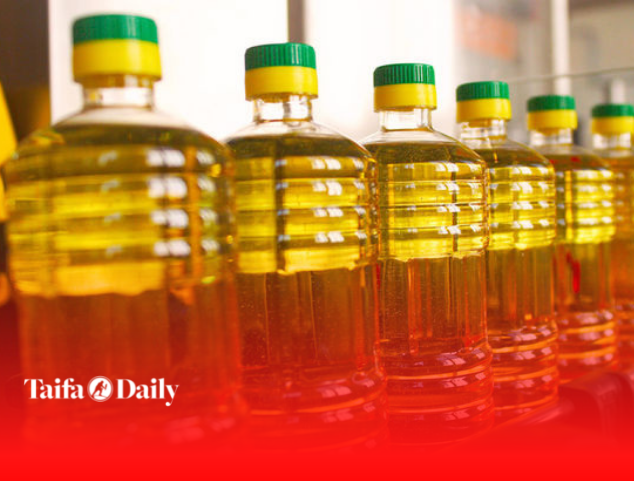If Tanzania is not ready to seriously invest in edible oil production, at least it should reconsider its national security priorities. Tanzania’s situation on edible oil is not rocket science to discern that national security is at stake. Succinctly, Tanzania is not ready to encounter any imminent blow on that angle.
To ease your frustration, let’s narrow this discussion to just one source of edible oil, palm cultivation.
Tanzania imports 98% of palm oil products, the second-largest import after petroleum in terms of value. The 2017 International Trade Center (ITC) report shows Tanzania was the 12th largest importer of palm oil products.
Despite having conducive land in Kigoma, a region in western Tanzania for palm cultivation, with more than 30,000 active small unsubsidized palm small farmers, the country imports more than 500,000 metric tons of palm oil annually. Tell me this is not insanity.
Tanzania edible oil crisis is not a new topic, former Kigoma town MP and an incumbent leader of ACT – Wazalendo, a fledging oppositional party in Tanzania Zitto K. Kabwe on January 1, 2018, unleashed the discussion on Twitter questioning the government’s reluctance on investing in palm oil production to save millions of dollars used to import the product annually.
People in Tanzania mostly consume refined palm oil for domestic uses. In contrast, in other places like Kigoma, where palm cultivation is relevant, people consume crude palm oil, which is less than 2% of the national market. Just for the record, Tanzania produces 40,000 tons of palm oil per year, 75% produced in Kigoma.
Tanzania is endowed with huge potential to produce enough edible oil to meet local market and international. Kigoma alone, responsible for over 70% of palm oil production in Tanzania, can feed Tanzania and the world at large. Tanzania largely possesses prerequisites to become the world’s giant edible oil producer, but the only impediment is a lack of political will.
It isn’t easy to conceive that Tanzania’s soap industries feed on 370,000 metric tonnes of imported crude palm kernel oil every month, and the demand increases by 12% every year (Dalberg, 2017). By this data, you must be thinking of the country’s economy and people’s employment if the flow of CPKO is hit either by sanctions, war or anything unexpected.
Kigoma is ranked among the poorest regions in Tanzania, despite producing over 70% of the country’s palm oil. Tanzania imports 55% of edible oil annually, spending over Tsh. 600 billion to feed more than 60% edible oil deficit. This will shock you, but Kigoma need not less than Tsh. 100 to invest in Palm to make Tanzania edible oil self-sufficient. Imagine just a half the sum used to import edible oil is invested in Kigoma. You do the maths.
The edible oil dependence in Tanzania can possibly plunge the country into a political crisis if drastic measures are not taken. For instance, higher food prices in 2008-2009 helped set off the revolts of Arab spring and protests that led to the toppling of Omar al-Bashir in Sudan in 2019. In Feb 2022 Rabat, Morroco’s capita, people took streets due to bread price soaring.
Turmoil is looming in Egypt. Egypt needs 21m tonnes of wheat a year to feed its 102m people. It can produce less than half of that. Egypt Imports 86% of its wheat from Ukraine and Russia. Russia-Ukraine War has reduced exports to Egypt, leaving Egypt’s security in dilemma.
How is Tanzania prepared when 98% imports of its palm oil products and 55.5% imports of edible oil imports are challenged by war, sanctions, or anything as the 21 century seems to be of great uncertainty?
However, Russia- the Ukraine war has placed a massive opportunity on the table in the edible oil supply. Vegoil prices such as crude palm oil have spiked and increased in demand since the war started. If only Tanzania had seriously invested in this sector, this could have been the ripe time to reap the product’s benefits.
However, that is not an excuse because, in the past 10 years, palm oil consumption has risen by 260%. UN data of 2019 show that palm oil has a clear edge in the global market compared to other edible oil such as soybean, cotton, groundnuts and sesame. There are no excuses for Tanzania to dominate the global edible oil market; inadequate investment is bogging the sector, thus putting national security in peril.
India is in the brick to plunge into turmoil due to skyrocketing edible oil prices (sunflower), of which 90% of its imports are from Russia and Ukraine. The shipment to India has completely stopped since the war started. Tanzania has a lot to learn from all these experiences worldwide.
Tanzania seems not ready to make an immediate revolution in Agriculture, although the sector employs almost 70% of its citizen. In the 2020/21 budget, the government allocated 229 billion for Agriculture, while neighbouring Kenya allocated Tsh. 1.2 Tri. No wonder they are better than Tanzania in the agriculture sector.
It is clear how edible oil can pose a significant threat to national security, let alone other imports that pose the same threat. Tanzania needs a better scheme that would spearhead the agricultural revolution. Not only tanks, fire jets, submarines, machine guns, and boots on the ground will protect our country’s dignity and sovereignty, but also the ability to produce and become self-reliant to essential products like food.


